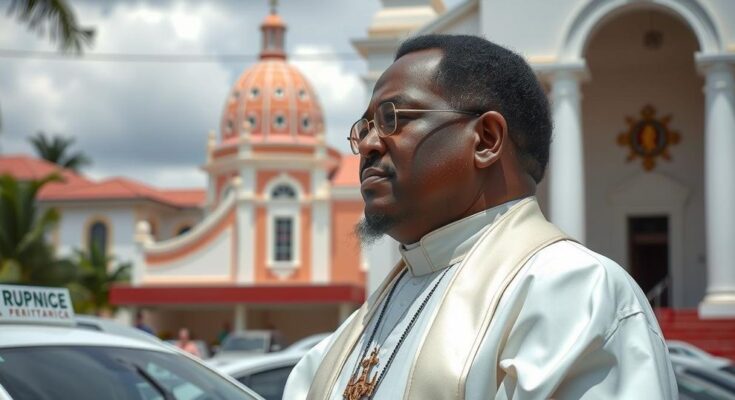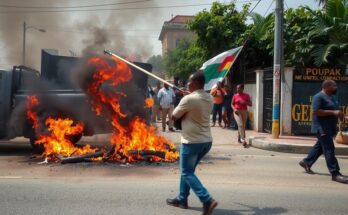Church organizations protest the Dominican Republic’s plan to deport 10,000 undocumented Haitian refugees weekly, arguing it exacerbates humanitarian issues faced by Haitians amidst rising anti-Haitian sentiment. Activists emphasize the importance of dignity and justice for migrants, criticizing current government measures as discriminatory and harmful.
Church organizations have condemned the Dominican Republic’s initiative, announced by President Luis Abinader, to deport 10,000 undocumented Haitian refugees each week. Activists emphasize that this policy exacerbates the dire conditions faced by the approximately 500,000 Haitians already residing in the country, many of whom have fled escalating violence and humanitarian crises back home. Father Agler Cherizier, a Scalabrinian priest, highlighted the need for respectful and ethical treatment of migrants, stating that “the dignity and sacredness of the lives of Haitians must be respected.” Reports suggest that since the announcement, anti-Haitian sentiment has surged, leading to increased discrimination and persecution towards Haitian migrants. Sister Eugenia Vásquez of Fundación Ascala confirmed that the proposed deportation strategy is not only unjust but also detrimental to thousands of families at risk of separation and abuse. The Latin American and Caribbean Church Network CLAMOR criticized these measures, citing corruption and bureaucratic challenges that hinder immigrants’ access to essential services. They have called for a compassionate reevaluation of deportation objectives, emphasizing the necessity for justice, fraternity, and human rights respect. Community leaders, like Abdias Chancy, have expressed grave concerns regarding the government’s immigration stance, describing harsh realities for Haitians, including arbitrary detainment and exploitation. The Dominican Republic’s policies toward Haitian migrants reflect a broader humanitarian crisis that requires urgent intervention and collaboration across the region and international bodies.
The Dominican Republic, sharing the island of Hispaniola with Haiti, has recently faced heightened tensions regarding immigration policies affecting Haitian refugees. Following President Luis Abinader’s re-election campaign, which capitalized on escalating anti-immigrant sentiments, the government resolved to repatriate an unprecedented number of undocumented Haitians. This move comes amidst worsening conditions in Haiti, where violence and instability have displaced hundreds of thousands, thereby increasing the refugee influx into the Dominican Republic. The church and humanitarian organizations are sounding alarms regarding violations of human rights and the deteriorating conditions faced by Haitian migrants.
In summary, the Dominican Republic’s policy to deport Haitian migrants has sparked significant concern among church leaders and humanitarian organizations, who advocate for humane treatment and respect for human dignity. The rising discrimination against Haitians, combined with bureaucratic hurdles, has led to an escalating crisis for many families seeking refuge. Urgent calls for reform highlight the necessity for cooperation to address the plight of Haitian migrants, ensuring their rights and wellbeing are protected within a just framework.
Original Source: cruxnow.com




